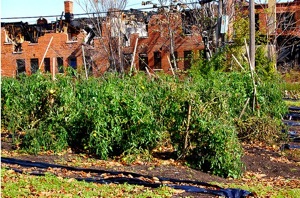Hello 11th Hour Community. Our site has been under a sustained attack by spammers for over a year. We have not found a good a way to deal with the spam so we have had to shut down automatic approval of new users and blog posts. We left the actions open because that was not hit by spam until this month. So we are shutting automatic approval of that as well. What that means is that you can still blog, and take action, it just will take awhile for it to post live to the site because we have to approve the posts first.
We are going to redesign the site and seek out new ways to deal with spam in the next few months. We are doing this as we are in the middle of releasing our next film Urban Roots, and we are in production on 3 more films so we need our community to be vibrant.
Amongst the spam continue to be heartwarming and wonderful posts from people who have seen the film and who have taken action or who have shared their thoughts and for that we are very thankful and it is because of these people, that we will continue to keep this site up and running.
Please bear with us as we upgrade the site and I ask all spammers to go elsewhere, you are ruining this site and you are not welcome. For everyone else who wants to discuss the positive changes that are being made in the world, or concerns about the environment, please continue to check back on our progress.
Thanks everyone. Leila Conners, director/producer/writer, The 11th Hour









